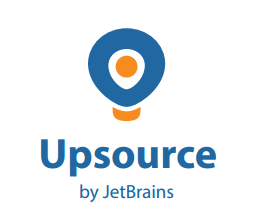Upsource
Code Review and Project Analytics
Early Access to JetBrains Upsource, a New Repository Browser and Code Review Tool
(This post was originally published on the JetBrains Company Blog on August 7, 2014)
It’s been almost a year since we first announced that we were working on a new web-based platform for viewing and exploring source code.
Fast forward a year of effort by a dozen developers, and here we are, announcing the launch of the very first Early Access Program for JetBrains Upsource: a new on-premises team tool that allows you to browse your source code repositories, share, discuss and review code.
Here are some of the things you can do with JetBrains Upsource:
- Keep track of revisions in source code repositories based on Git, Mercurial, Subversion and/or Perforce. Recent DVCS repositories, old-fashioned repositories, repositories on GitHub or hosted internally: you can plug Upsource to all of them. You can also filter history with a YouTrack-like query syntax, focusing on specific branches, paths, developers or time spans.
- Visualize the history of commits, branches and merges. Next to the list of commits in each repository, there’s an illustrative commit graph inherited from
IntelliJ IDEA . - Examine changes in new revisions in detail. Inline or side-by-side diff views are available for any revision and work equally well with every supported VCS.
- Explore any revision of your code base, file by file. Browse the structure of any revision, open or search for any files in revision, see their history and contributors, or create discussions in these files.
- Enjoy code inspections in Java projects, as if you were working in IntelliJ IDEA. When you view Java files in any revision or when you display a side-by-side diff that compares two states of a Java file, you see all the automated Java code inspections that you would expect in the IntelliJ IDEA code editor.
- Discuss code and code changes, or set up code reviews. You can go the common way of creating code reviews on new revisions, or you can explore files that might not have changed recently and create discussions about specific parts of code whenever you feel there’s a problem in code. Later on, as new code reviews are created involving these files, you and your team have quick access to discussions that weren’t properly addressed at the time when you created them.
For a visual summary of what Upsource is like, see this 10-minute introductory video by the ubiquitous Hadi Hariri:
If you’re interested in Upsource, here’s what you can do:
- Read about Upsource and learn more what it’s capable of as a repository browser and as a code review tool.
- Subscribe to receive e-mails about further Upsource releases, including Betas and the final Upsource 1.0 release.
- Download a pre-release Upsource build by becoming a part of the Upsource Early Access Program (EAP).
As usual, being a part of an Early Access Program provides an extra opportunity for you to get in touch with the team and work closely with JetBrains to shape how Upsource develops on the way to its first general release. Granted, EAP builds will most probably have some rough edges but we’ll do our best to help you out and listen to your input.
Of course, Upsource is being actively dogfooded here at JetBrains. Our internal Upsource installation currently integrates 56 source code repositories hosted both internally and externally, and this includes IntelliJ IDEA Community Edition, one of the largest public GitHub projects. This means you’re going to be in good company during the Early Access Program!
We expect this EAP to last for a few months and we’re aiming for a final Upsource 1.0 release before end of this year. Things that we’re definitely going to do before we release include an IntelliJ IDEA code review plug-in, integration with JetBrains TeamCity, as well as easy export and import of data. For details, please see Upsource 1.0 Roadmap.



